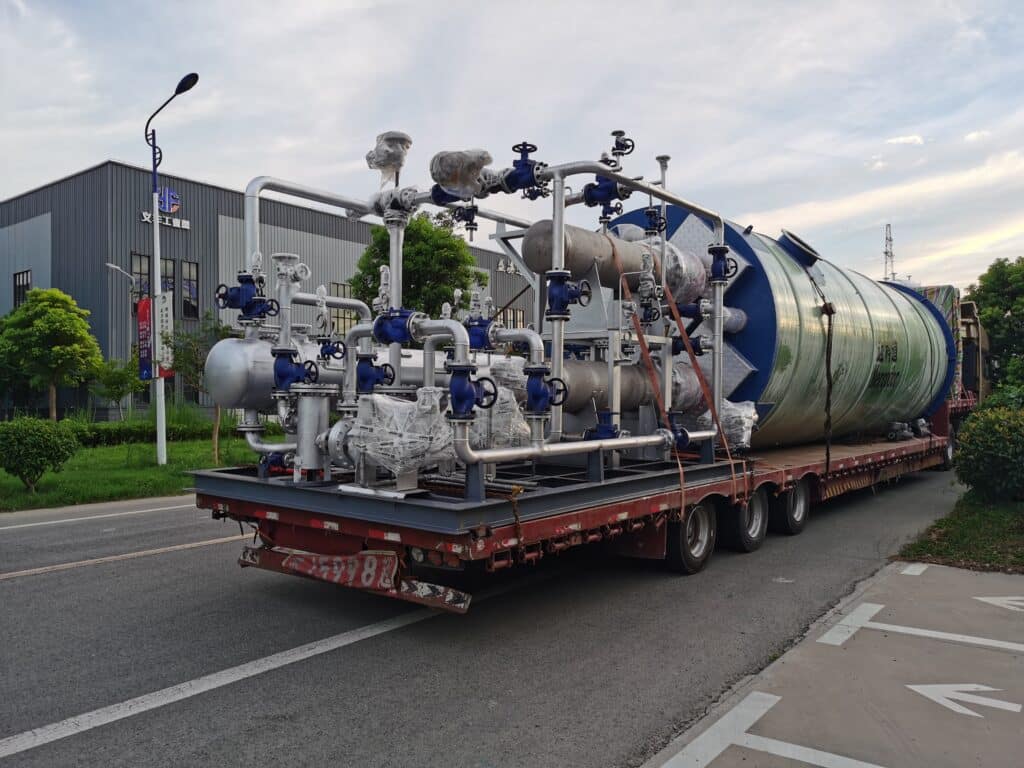Article Content
Introduction
Thermal oil boilers are widely used in marine and industrial settings due to their superior performance and adaptability. They are essential when precise temperature control, the use of various fuels, and high heating efficiency are critical to operational success. This guide delves into the key features, maintenance practices, and considerations for purchasing thermal oil boilers, assisting users in maritime and industrial environments to make informed decisions.

Key Features of Marine & Industrial Thermal Oil Boilers
High Operating Temperatures (Up to 350°C/662°F)
Thermal oil boilers provide high operational temperatures without the need for high-pressure systems. This feature is vital for safety in marine settings and ensures efficient heating in industrial plants with limited space.
Resistance to Salt and Chemicals
Marine boilers are built with materials resistant to saltwater corrosion, while industrial units focus on durability against chemical byproducts, ensuring long service life and reduced maintenance costs.
Compact Design
Space optimization is crucial for both marine vessels and industrial plants. Modern boilers are designed to be compact and modular, offering flexibility in installation while maintaining efficiency.
Fuel Adaptability
These boilers are compatible with various fuels, including diesel, heavy fuel oil, natural gas, and biomass. Dual-fuel capabilities are particularly advantageous in marine applications with varying regulatory requirements.
High Degree of Automation
Equipped with advanced control systems, modern boilers automate temperature regulation, fuel feeding, and safety monitoring, reducing labor input and enhancing operational efficiency.
Maintenance Tips for Thermal Oil Boilers
Regular Oil Analysis
Thermal oil degrades over time, forming carbon deposits that can damage pipelines. Regular oil analysis ensures timely replacement and prevents costly shutdowns.
Heat Exchanger Cleaning
Heat exchangers accumulate scale and silt, reducing heat transfer efficiency. Routine inspections and cleanings are essential for optimal performance.
Expansion Tank Checks
Expansion tanks compensate for oil volume changes due to heating and cooling. Regularly inspect for leaks and pressure issues to avoid system failure.
Pump Performance Monitoring
Pumps ensure proper oil circulation. Periodic checks prevent overheating or insufficient heating, maintaining a consistent flow rate.
Combustion System Calibration
Regularly calibrating burners and inspecting for incomplete combustion minimizes fuel waste and emissions, improving boiler efficiency.
Buying Tips for Thermal Oil Boilers
Assess Heat Demand
Determine your specific thermal requirements, including heat load and temperature range, to select the right boiler for your needs.
Prioritize Energy Efficiency
Invest in high-efficiency boilers with features like heat recovery systems and economizers to achieve long-term cost savings.
Choose a Reputable Manufacturer
Opt for brands with proven track records, warranties, and readily available spare parts to ensure reliability and support.
Evaluate Safety Features
Ensure the boiler includes safety mechanisms such as pressure relief valves, automatic shutdowns, and real-time monitoring systems.
Consider Fuel Flexibility
Dual-fuel systems are advantageous for marine applications, while industry-specific solutions may include solvent recovery or multi-fuel options.
Factor in Maintenance and Lifecycle Costs
Consider total ownership costs, including maintenance, fuel consumption, and expected lifespan, for a sound long-term investment.
Applications of Thermal Oil Boilers
Marine Applications
- Cargo Heating: Maintains the temperature of liquid cargoes like asphalt, oil, or chemicals.
- Engine Support: Provides heat for auxiliary engines and onboard heating systems.
Industrial Applications
- Chemical Processing: Ensures precise temperature control for sensitive reactions.
- Textile and Paper Industries: Delivers reliable heat for drying processes.
- Food Production: Supports consistent heating for frying, baking, and other thermal treatments.
Conclusion
Thermal oil boilers are essential for marine and industrial operations, offering high-temperature efficiency under low-pressure conditions. With proper design, maintenance, and system selection, they provide reliable and cost-effective heating solutions. Whether for maritime or industrial applications, investing in the right thermal oil boiler ensures operational success.
Customizable Products Note
Our company offers customized products. Click on the menu to contact us for tailored solutions, or visit our product page to explore more options!
Reading:
